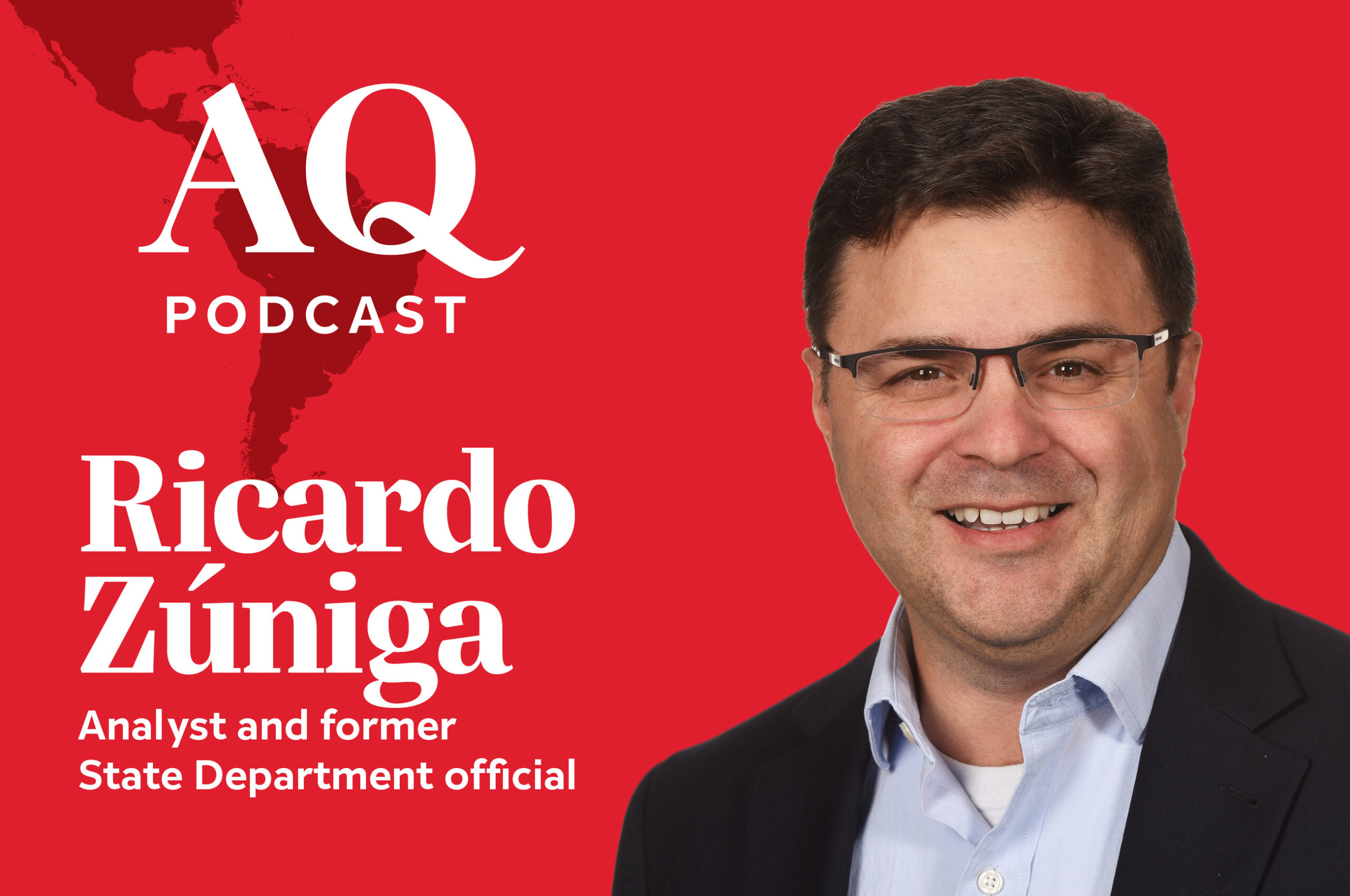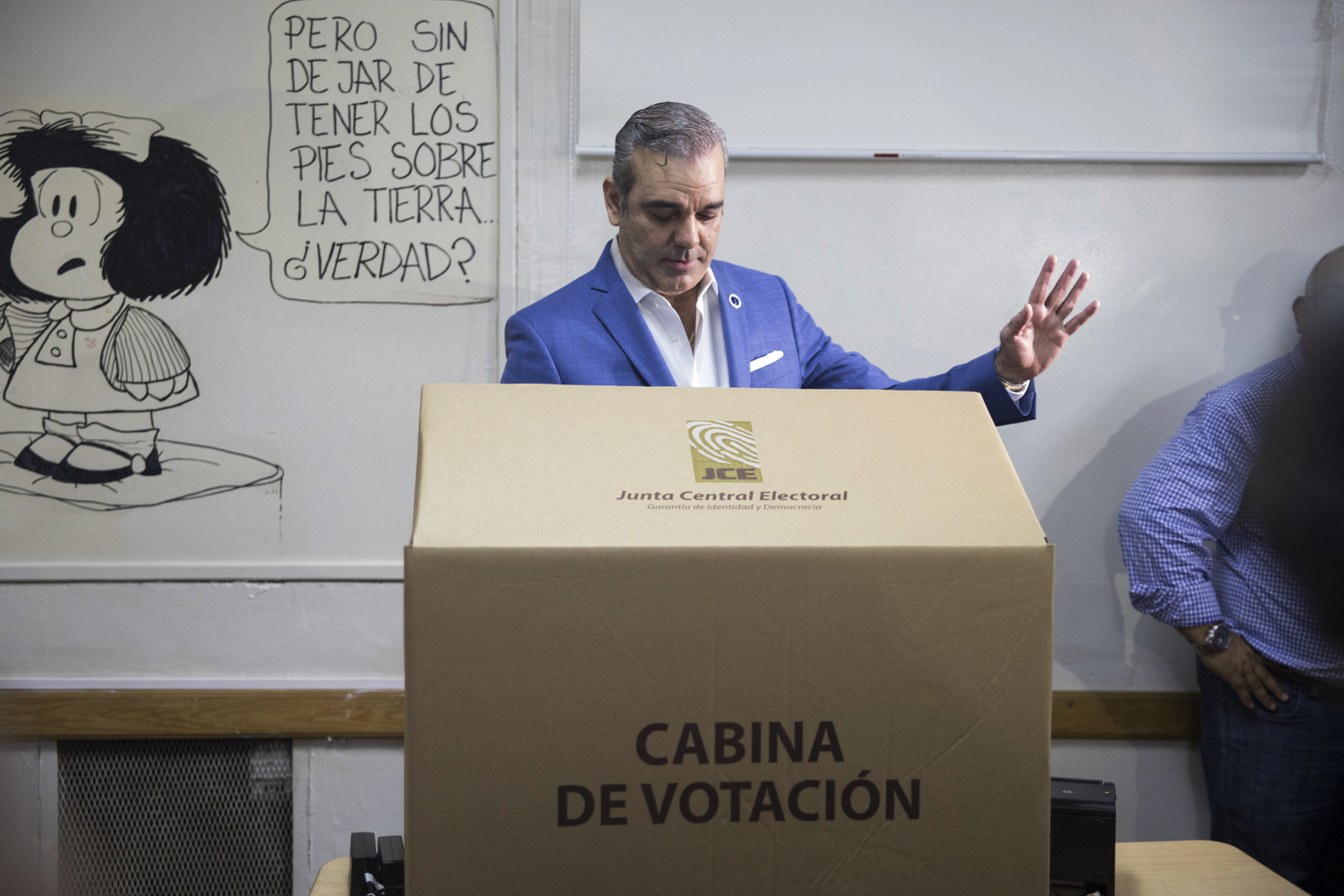Public Opinion in Latin America: Democracy, the Economy, and Institutions
Public Opinion in Latin America: Democracy, the Economy, and Institutions
An AS/COA panel featuring Director of the Latin American Public Opinion Project Mitchell Seligson explored the findings of a 2010 public opinion poll across 26 countries in the Western Hemisphere.
Speakers:
- Christopher Sabatini, Senior Director of Policy, Americas Society and Council of the Americas (opening remarks)
- Mitchell A. Seligson, Centennial Professor of Political Science; Director of Latin American Public Opinion Project, Vanderbilt University
Summary:
This program presented the latest findings from AmericasBarometer, a biannual public opinion survey carried out by the Latin American Public Opinion Project (LAPOP) at Vanderbilt University. The 2010 edition, which measured public opinion in 26 countries throughout the Western Hemisphere, centered on Democratic Consolidation in the Americas in Hard Times (access the full report here). With the global recession as the central storyline since the 2008 survey, LAPOP focused on whether the economic downturn would affect citizen support for democracy and overall democratic consolidation.
Crisis or No Crisis?
LAPOP began to address its core research theme by determining how citizens of each country perceived the global downturn. Across the region, 6.9 percent of people surveyed believed there was no global economic crisis, 1.7 percent didn’t know if their country was experiencing a crisis, and the remaining 91.4 percent were evenly split between calling the crisis “very serious” or “somewhat serious.” The perception that the global recession is “very serious” was highest in Jamaica and the United States, while it was lowest among the populations of Uruguay, Suriname, Chile, and Costa Rica.
When it came to assigning blame for the cause of the recession among those who perceived a crisis, 20.8 percent blamed their country’s previous governmental leadership while 4.0 percent blamed “the problems of democracy.” Dr. Seligson noted that only 7.8 percent faulted “rich countries,” with that tendency linked to respondents with higher levels of political knowledge.
Attitudes about Democracy and System Support
Dr. Seligson commented that in spite of the economic crisis, attitudes regarding the legitimacy of democratic systems were surprisingly resilient. The majority of citizens in all 26 countries, including Haiti, did not lose faith in the models of democracy even in the midst of economic turmoil. Rather, 69.8 percent of respondents across the region voiced high support for democracy in the 2010 survey, compared to 71.1 percent (a statistically insignificant difference) in 2008 before the economic crisis took off. Support—measured by the extent to which respondents agreed with the statement “Democracy may have problems, but it is better than any other form of government”—ran highest in Uruguay, Costa Rica, Argentina, Suriname, and the United States. Peru demonstrated the lowest level of support for democracy.
Beliefs about the Role of Government
A difference between the United States and Latin America surfaced when looking at respondents’ attitudes toward the role of government in the economy and society. The majority of respondents in Latin American and the Caribbean felt that the government should be the primary entity responsible for creating jobs, providing health care services, and ensuring the well-being of its people, while in 15 countries the majority believed the government should own the most important enterprises and industries. The United States was the extreme outlier (on the low end) in all cases.
Perceptions about government economic performance also varied. When asked if their country’s economy was in a better place than 12 months prior, the majority of respondents answered affirmatively. Paraguay, Nicaragua, and Panama posted the three highest percentages of “yes” respondents; Argentina, Venezuela, and Mexico logged the three lowest. Satisfaction with government economic performance had the biggest impact of any economic attitude on determining support for democracy and the political system overall.
This led Dr. Seligson to conclude that countercyclical macroeconomic policies enacted by governments during the recession to boost the lowest socioeconomic populations not only prevented a more serious economic fallout, but also helped solidify people’s faith in the political legitimacy of democracy. Early evidence suggests that “pro-poor” policies, such as conditional cash transfers in Brazil, mitigated the effect of the crisis and preserved support for democracy. Had such policies not been pursued, Seligson surmised, the very ideals of democracy that exist in the region may have been threatened. AmericasBarometer plans to investigate this link further in its 2010 survey.
Predicting the Risk of Instability
The 2010 LAPOP report also includes an analysis of political instability and democratic vulnerability in the Americas. Dr. Seligson noted that if a country’s population registered both low support for democratic systems and low tolerance for the political process, democracy would be at risk. AmericasBarometer concluded that the top-five countries meeting these criteria were Haiti, Peru, Paraguay, Ecuador, and Bolivia. By far, Haiti had the lowest levels of system support and political tolerance in the region. In contrast, Costa Rica, Uruguay, Suriname, and the United States (in decreasing order of stability) ranked as the most stable democracies.
The people’s trust in their armed forces served as a measure of support for democracy and the political system: greater trust corresponded to greater support. However, this fact does not necessarily ensure stability of the political system, given that trust in armed forces also positively related to support for armed coups. The United States had the highest trust in this regard while Argentina polled the lowest.







